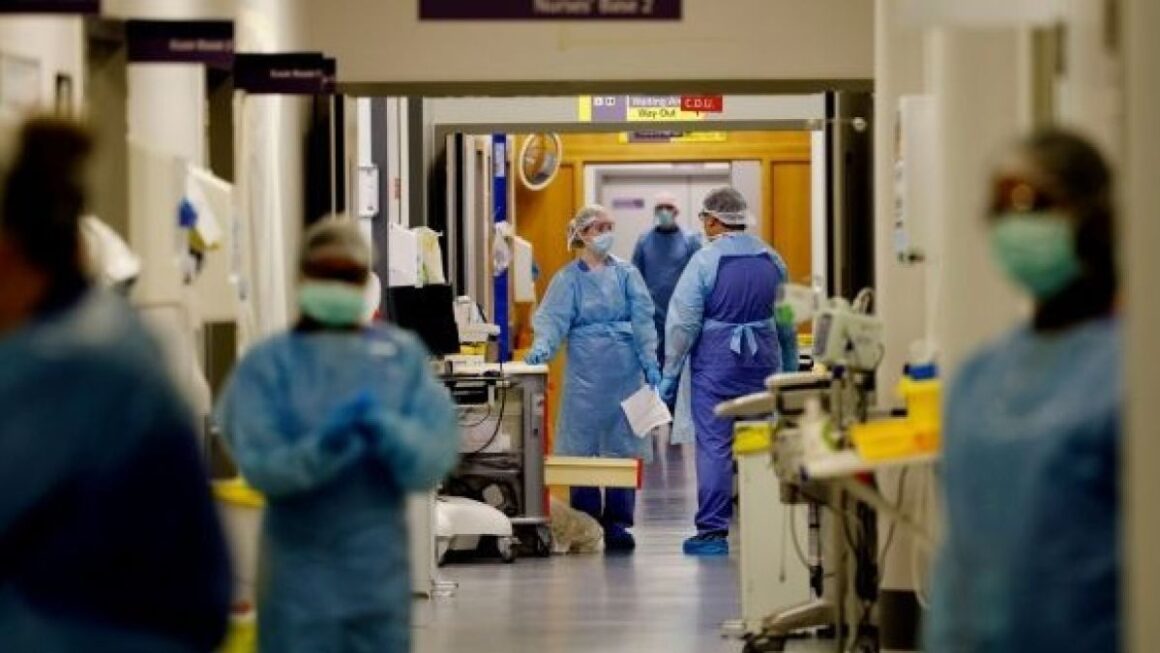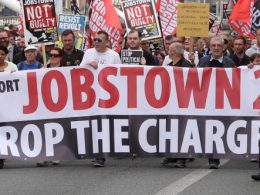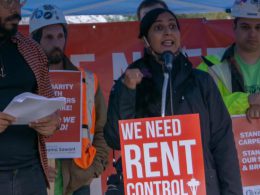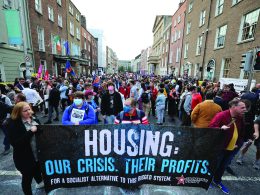By Conor Payne
There has been a huge rise in Covid-19 infections since restrictions were lifted from late January onwards. Official figures, reflecting PCR tests and antigen tests which have been reported to the state, show thousands of new cases every day.
However, Health Minister Stephen Donnelly has admitted that the real figure is probably ‘’hundreds of thousands’’ of cases a week. The 7-day average of people in hospital with Covid stands at over 1,500, compared to around 600 in early February. The effects of mass vaccination mean that many of these cases are relatively mild, although the virus remains a real threat to those with underlying health conditions who have been utterly disregarded by the government.
Abolishing restrictions
Again, Donnelly accepts that he is ‘acutely aware of the pressure which the current demand for Covid care is putting on the healthcare system’. Despite this, the government has pressed ahead with its current approach.
Rather than considering a return to mask-wearing, working from home and other measures, Micheal Martin has made the laughable argument that the new variant is so transmissible that it is almost impossible to stop. So in effect, it’s better not to make any effort to reduce the spread of the virus.
It’s no surprise that this is happening since restrictions were lifted completely earlier in the year. Research by the ESRI shows that individual behaviour has changed since restrictions were ended with, for example, those wearing masks on public transport falling from 90% to around 60%.
Government to blame
But there is no sense blaming individuals, who were only responding to the general message of the government and establishment media that a corner has been turned and the pandemic is effectively over. They have also dismantled the test and trace system, with the majority of the population no longer entitled to PCR tests. Workers – including many with medical vulnerabilities – often have no choice but to be in crowded workplaces, be they schools, pubs and restaurants, offices etc.
Now the government has requested advice from the Chief Medical Officer on reducing the self-isolation period for people who have Covid from seven to five days, undoubtedly reflecting the pressure of the business lobby. Workers should resist the attempt to force sick and potentially infectious people into work and should demand safe workplaces generally.
Throughout this pandemic, the Socialist Party has argued that neither the government nor the bosses can be trusted to put the health and safety of workers and the general public over the needs of profit. Instead, we have called for workers’ control of health and safety in the workplace including the right to implement whatever mask and social-distancing measures are necessary.
Public health must be prioritised
While this current wave may ebb in the weeks ahead, there are big dangers if the interests of profit and business interests continue to be prioritised over even basic public health measures. Clearly, people can be re-infected with Covid so we can see new waves of infection in the future and we don’t know whether future variants will be comparatively mild or more severe.
At minimum, while the current wave is at such levels, there should be a return to a policy of mask-wearing and social distancing in any crowded indoor settings and on public transport, as well as a proper test and trace system. More generally our weak public health service must be overhauled with massive investment in staff and resources and the nationalisation of all private hospitals.












